
Teaching mindfulness to preschooler’s can be a difficult task. Let’s face it, it can be hard for adults to understand the concept. But research has shown clear benefits for people who routinely practice mindfulness. So why not start them young with the hope that early exposure will lead to greater likelihood of success?
The following are a few books I found useful for my preschooler:
Peaceful Piggy Meditation by Kerry MacLean
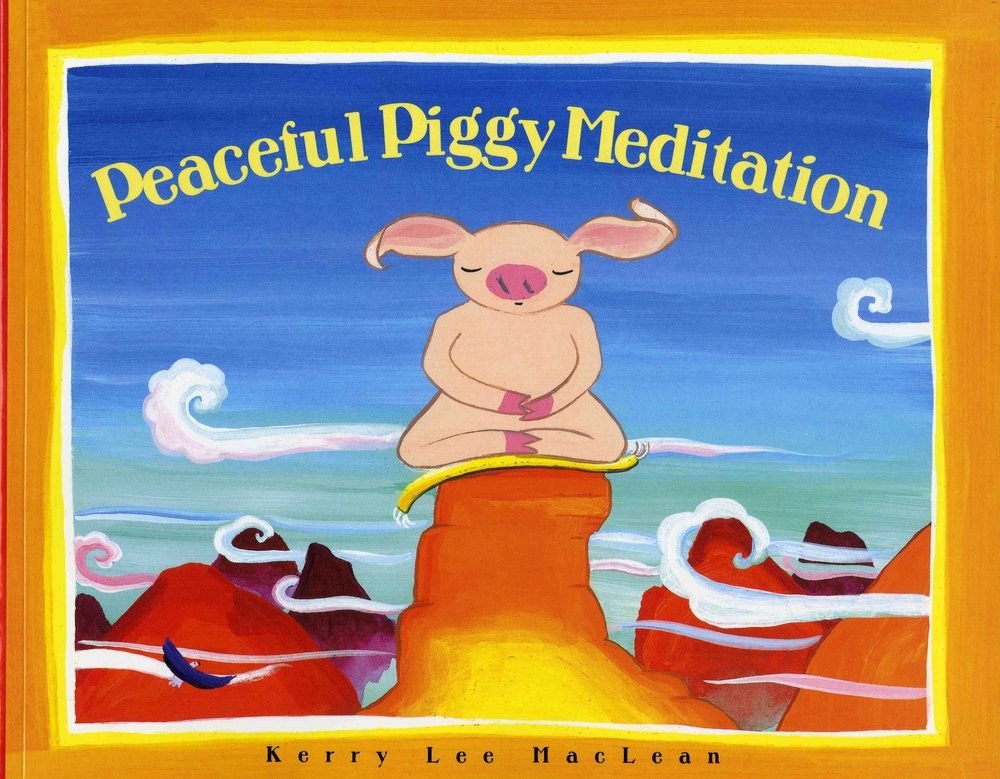
This book aims to teach kids to take time to calm themselves whenever they are feeling overwhelmed by busy schedules, are angry, or are frustrated. It provides the child with a few simple things they can do to center themselves so they can stay calm even when life is not. The book also explains when you are calm it is easier to be nicer to people, even if they are not being nice to you.
The end of the book provides a few exercises you can do with your child to promote meditation with your kids. This section may be too advanced for your preschoolers, but it’s something to keep in mind when they get older.
I like this book because it explains how when life becomes hectic we need to take time for center ourselves. This will help prepare us to take on the challenges of the day. Some of this book may be a little over my preschooler’s head, but I think it’s worth getting him used to the terminology so when he is ready for this it won’t be a new topic.
Last Stop On Market Street by Matt De La Peña
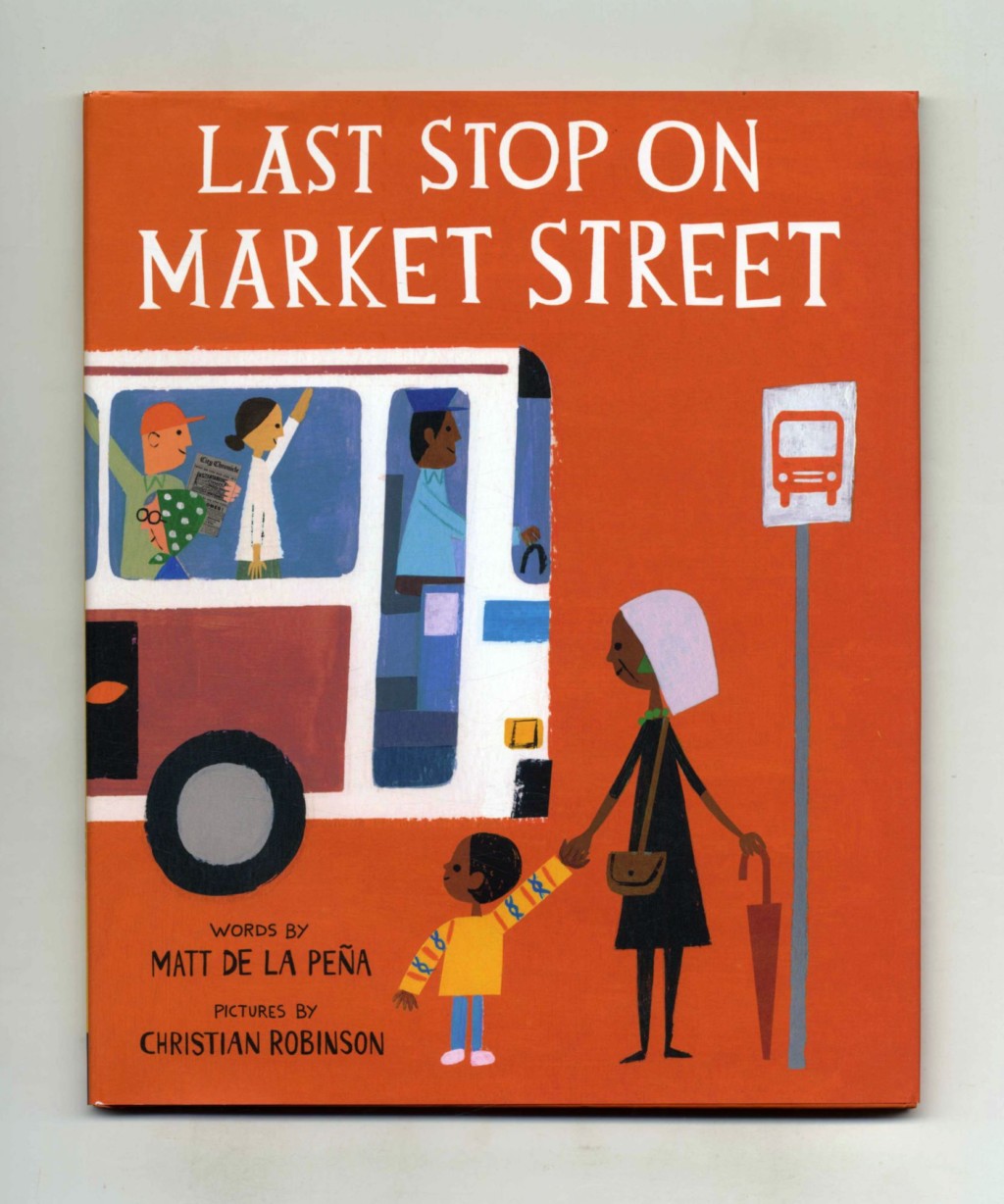
Last Stop On Market Street follows a grandmother and her grandson as they travel on a city bus towards an unknown destination. Throughout the book, the grandson enviously wishes for things he doesn’t have. Each time he does this his grandmother uses her wisdom to explain that not only does he not need those things, but that he is better off without them. She does this by showing him the beauty of the things he already has.
At the end of the bus ride they get off in an old, worn down part of town. The grandson wonders aloud why it is always so dirty in this part of town. The grandmother replies, “Sometimes when you’re surrounded with dirt, CJ, you’re a better witness for what’s beautiful.” Something clicks for the grandson, and he finally understands why his grandmother is so happy. He stands there in awe of her ability to find beauty in places he never even thinks to look.
The book ends with the two walking into a soup kitchen. The grandson tells the grandmother he’s glad they are there, the grandmother knowingly pats him on the head and leads him to the place where they begin to volunteer.
I like this book because it turns our preconceived notions of what is great and desirable on its head and shows us the beauty and wonder in everyday things. I also really like the quote above. We may even use it as a mantra of sorts for our family to try and keep ourselves grounded.
Pete the Cat and His Magic Sunglasses by Kimberly Dean and James Dean
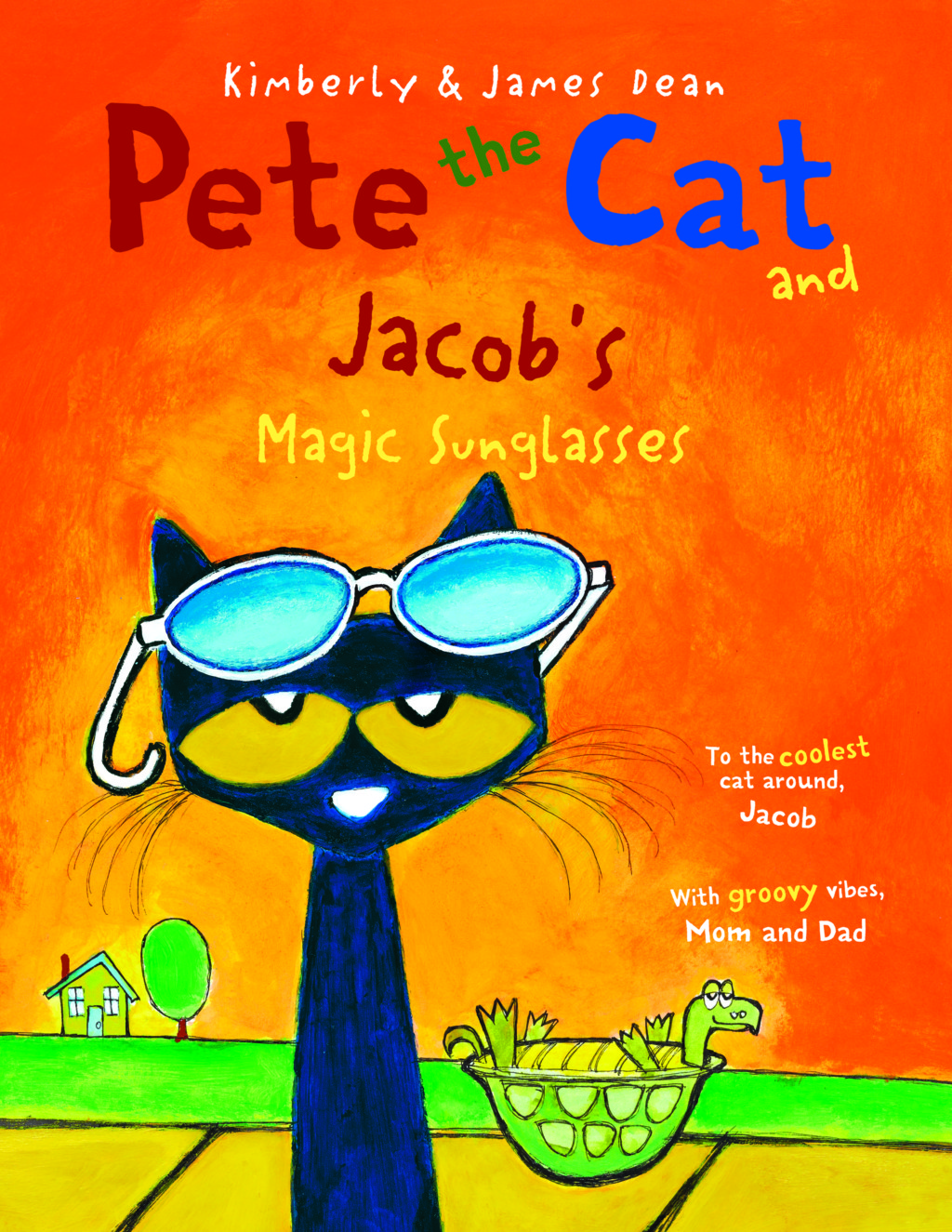
Pete the Cat is always a happy cat, but today he’s in a bad mood. To make matters worse he runs into Grumpy Toad, who is always grumpy, and expects to find him this way today. To his surprise, Grumpy Toad is happy. He tells Pete the reason for his happiness are these cool, blue, magical sunglasses. The glasses are supposed to help the wearer see things in a whole new way. Pete tries them on, and his whole perspective changes; he instantaneously becomes happy again.
He continues on his way and encounters others who are angry, frustrated, and sad; and each time he tells them about the cool, blue, magical glasses. The characters try on the glasses and also becomes instantly happy. Pete thinks this is great. He’s not only been able to turn his mood around, but also the mood other people as well.
And then he accidentally breaks the glasses.
Crestfallen, he wonders aloud what he is going to do. Then from above, he notices an old owl who tells him he doesn’t need the sunglasses. All he needs to do is to look for the good in everything. Pete realizes he doesn’t need the sunglasses and book ends with all the characters playing happily together.
I like this book because it shows the child we don’t need things, or others, to help us find happiness. We just need to look for the good and the happy in everyday life and that when we take the time to notice these things happiness will follow.
Mindful Monkey, Happy Panda by Lauren Alderfer
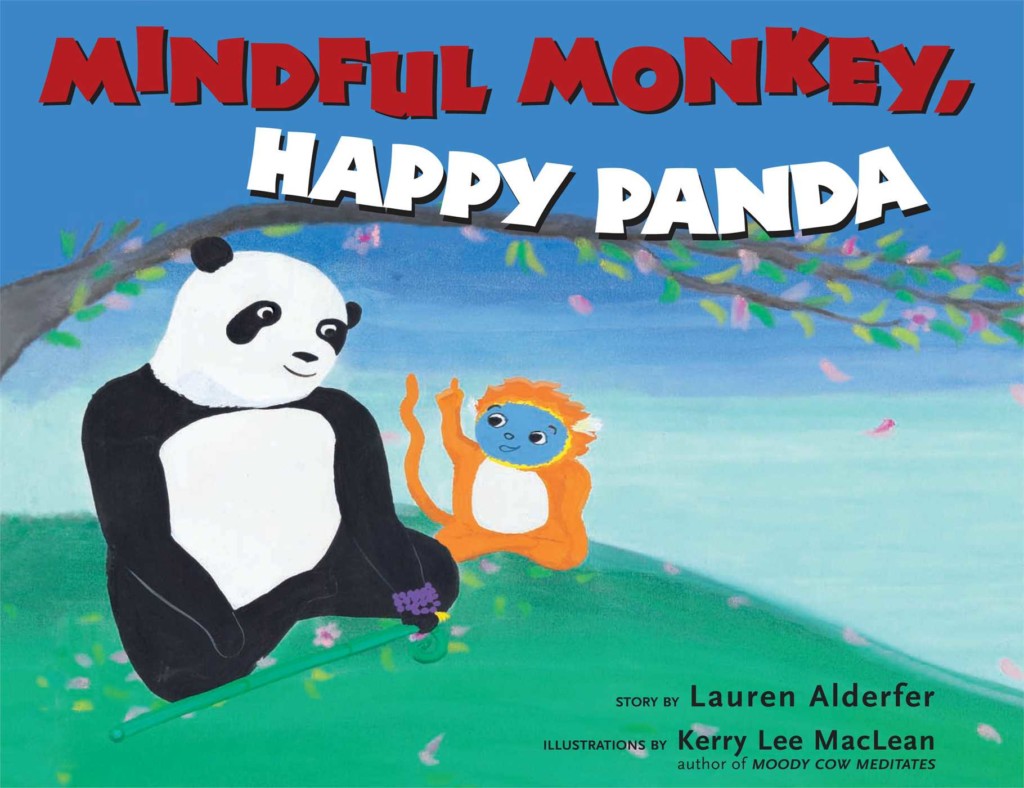
This book centers on two characters: a monkey who is always thinking about something other than what he is doing and a panda who only focuses on the present. So when the monkey notices the panda on his way home, he stops to ask the panda why he is so happy. The panda tells the monkey about mindfulness. He explains he is happy because he keeps his mind on the present. He tells the monkey he need not worry about the past for it is behind us, and he should not worry about the future because it is not here yet.
The panda then explains that when you are truly mindful of the present you will find true happiness. The monkey realizes this is why it’s called mindfulness; because when your mind is full of the present, you don’t have room to think about anything else. He then turns to the panda and says he wants to be mindful and the two walk off hand in hand.
I like this book because it breaks down mindfulness into an easy to understand concept. I feel like I even gained a greater understanding of what it means to be mindful. The metaphor of having a full mind to prevent yourself from thinking of other things is really great. In my opinion, this book does the best job breaking down mindfulness in a way even a preschooler can understand.
Lacey Walker, Nonstop Talker by Christianne Jones
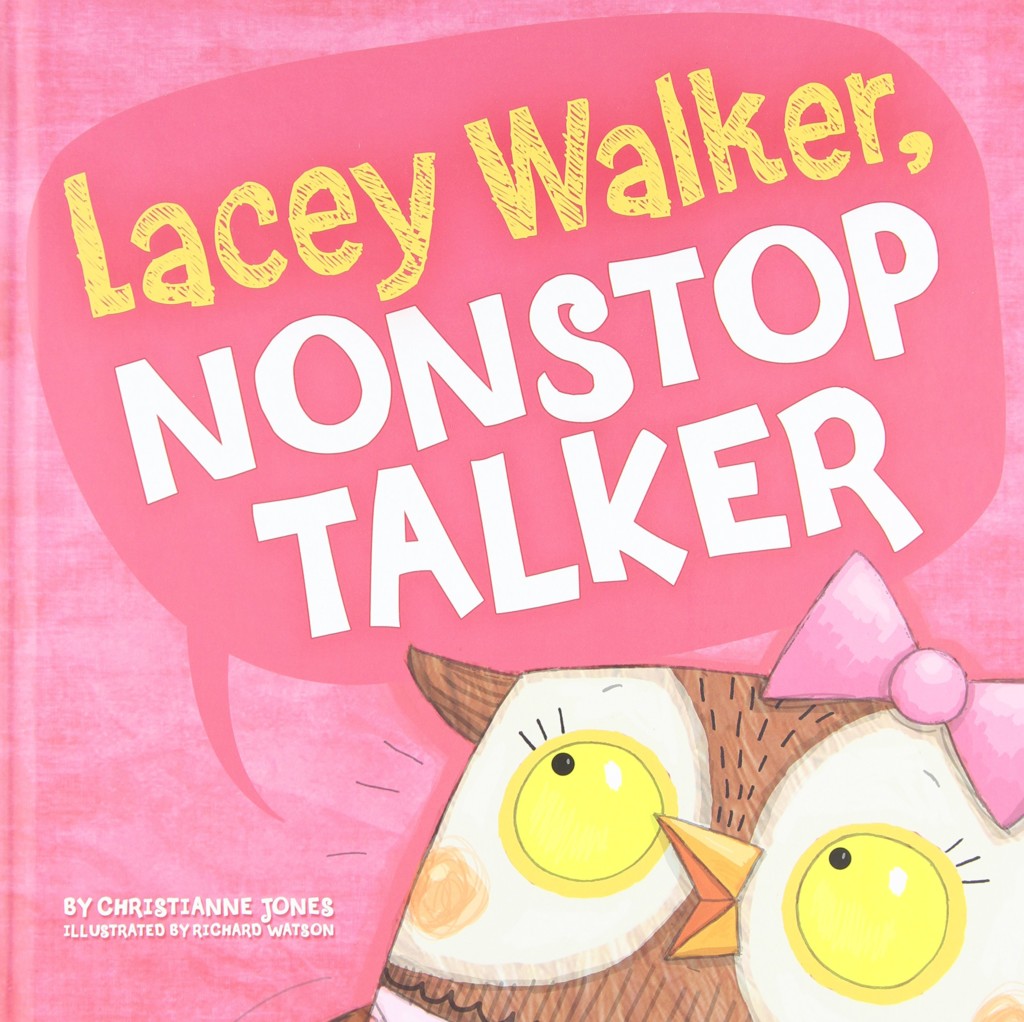
Lacey Walker, Nonstop Talker is about a little owl who never… ever… stops… talking…. You can see it taking a toll on all of the people in her life; her mom, teacher, brother, and dad. Everyone is at the point of exasperation with Lacey.
Then one day, she loses her voice and must proceed through the day without talking. She mopes through the first part of the day, but soon realizes some of the things which used to take her forever are now much easier to finish. Lacey eats her breakfast, gets her homework done, finishes her assignments in school, and even gets a gold star. She also notices how funny her best friend is, how great the movie is her brother is watching, and how much extra time there is at bedtime because she is not spending the whole day talking. It is then, she realizes listening can be just as amazingly fun as talking.
The next day her voice comes back. She is super excited to tell everyone about the things she learned the previous day. But first, she stops and listens while she does her morning tasks, showing she really did take the previous day’s lesson to heart.
I like this book for a couple of reasons. One, my preschooler never stops talking. So hopefully, he’ll pick up the not so subtle message we are trying to tell him with this book. And two, the book does a good job showing how when we spend our whole day talking, we are bound to miss out on things. Things we would have noticed had we spent more time listening and observing life around us. And while some of this may be wishful thinking on my part; he is still super young, I’m optimistic some of this will rub off on him. If nothing else, it is a good reminder for me to stop and listen more often.













Thanks for the great book suggestions, Dan! You might like Zen Ties and the other Stillwater books.
Thanks for the compliment! I’ll definitely check them out.